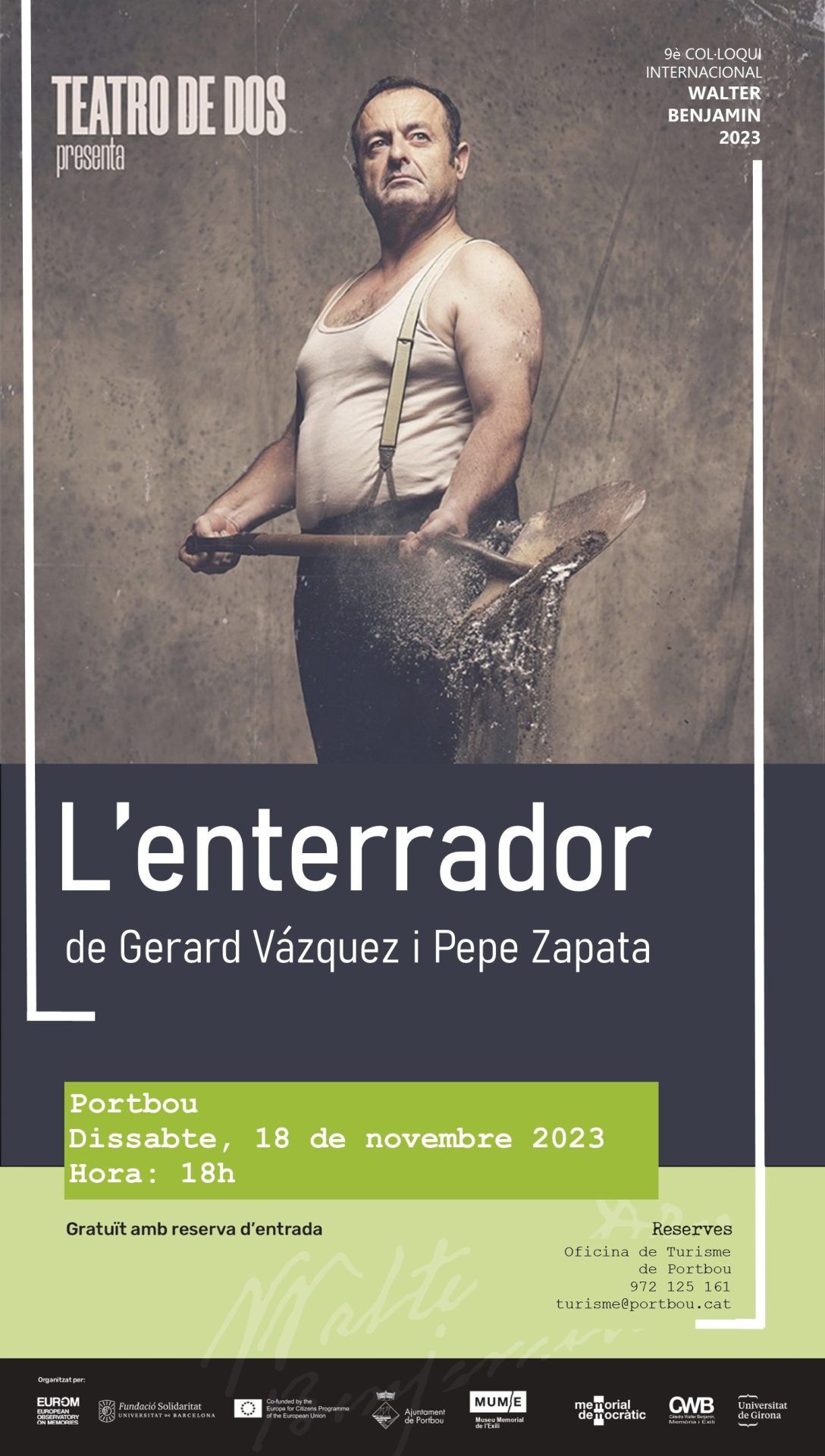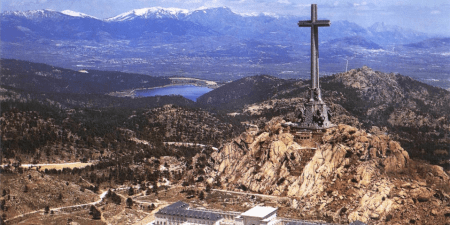The ninth edition the colloquium will address contentious topics through the exploration of fundamental concepts and the illustration of a wide range of geographical and historical situations. These examples will underscore the intricate connections between history, memory, legislative intent, and ultimately, the role of public memory policies as governing instruments for “histories that remain relevant.”
Confirmed speakers include Josep Maria Fradera (UPF), Sébastien Ledoux (Université Paris 1 Pantheon-Sorbonne), Marisa González de Oleaga (UNED), Chiao-In Chen (CEDID-UAB), José María Faraldo (Universidad Complutense Madrid), Emmanuel Droit (Université of Strasbourg), Paloma Aguilar Fernández (UNED), and Alfons Aragoneses (Directorate General of Democratic Memory and UPF).
As part of the Colloquium, on Saturday, November 18, participants are invited to take the walking route from Banyuls to Portbou, in tribute to Walter Benjamin. In the afternoon, the theatre play “The Gravedigger”, by Gerard Vázquez and Pepe Zapata (Teatro de dos), will be performed at Sala la Congesta in Portbou.
Background: History, memory and legislative will
In the course of the last three decades, legal articles in the field of memory and remembrance have been approved in many of the countries that have experienced military conflicts or dictatorial political regimes characterized by the systematic violation of human rights. To legislate means, in good measure, to regulate, order and prioritize access to the past. It entails including legal, moral and political criteria in the interpretation of the recent past. It is often referred to as “memory duty”.
The past is important in the shaping of the present of societies and, therefore, it is not much less a material deposited in an ivory tower at the disposal of scholars. On the contrary, it is a legacy – very often conflictive – that is traumatically linked to the present. How to “master” this past is a great challenge. The historian Antoine Prost and the philosopher Paul Ricoeur suggested a few years ago a twist on the famous statement “duty of memory” and opted for a “duty of history” to facilitate the “right to memory”.

Theatre play: The Gravedigger
This fictional theatrical work is loosely based on the experiences of several people, such as Leoncio Badia Navarro – also known as “the gravedigger of Paterna” – who have been collected by numerous written press reports and radio pieces in Spain. As an artistic choice and with the intention of giving the proposal a fully respectful treatment, no mention is made of places or real people. The play also aims to pay a tribute to all the people, in many cases anonymous heroes, who with their determination left a witness to humanity.
Programme
Organized by the Walter Benjamin Chair of the University of Girona (UdG) and the Exile Memorial Museum (MUME) with the collaboration of the EUROM , CCCB, and Nau Côclea and with the support of City Councils of Portbou and Gerona, Diputació de Girona, Ajuntament de Girona and the Social Council of the UdG.
Survey
This activity is co-financed by the European Commission. If you attended this activity, please take a moment to share your impressions throughout this survey of the programme Justice, Rights and Values 2021-2027 and collaborate to improve our project. It will take about 10 minutes, and you will need the information indicated below. Thank you very much!
- Reference of the Project: 101104202
- Kind of activity: Mutual Learning
- Title: Walter Benjamin 2023
- Date of the activity: 18/11/2023
- Duration of the event in days: 3
- In Person
- Catalonia, Spain

